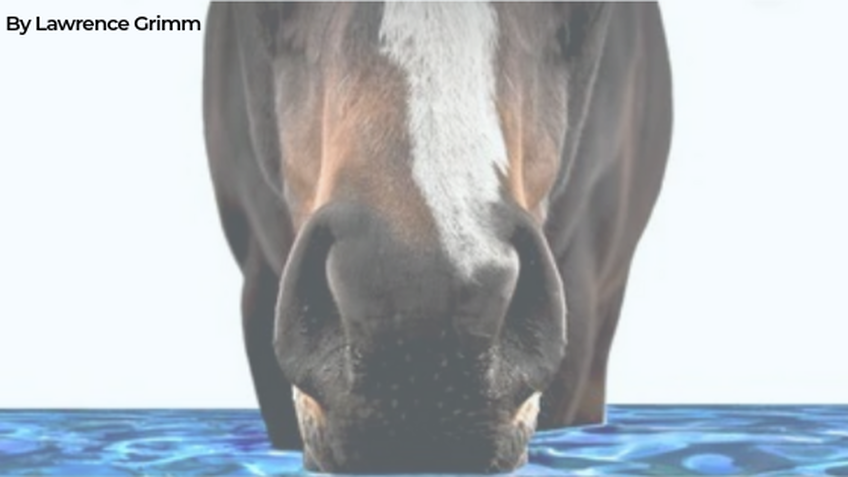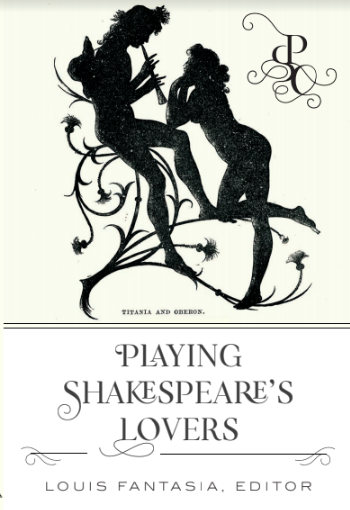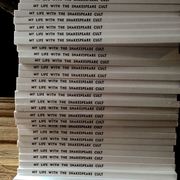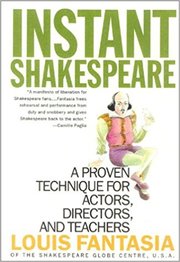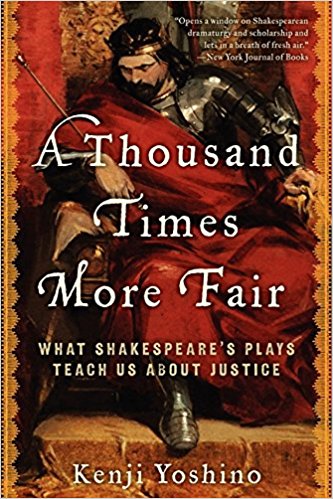“My love is thine to teach. Teach it but how, One of the most rewarding elements in teaching is that moment of winning a student over to an appreciation or understanding on the beauty and relevance of a particular insight or text. On a really good day it is a soul shaking epiphany that can elevate one’s consciousness and being in totality for the ultimate lightbulb moment in the classroom. It is even more impactful when one reflects on where we started: seems like just yesterday that we judged Shakespeare as ancient and boring and the eventual achievement of awareness and appreciation seemed so distant, unlikable and impossible. Sometimes the sheer desire for this incredible learning moment, which in no uncertain terms can be a shared ecstasy for both pupil and mentor, is obliterated by a teacher’s own zealousness to get “there”. Indeed, that special moment of understanding is by its nature often purely organic and spontaneous and can rarely be part of a pre-conceived and well scaffolded lesson plan. In Kate Fodor’s play, Hannah and Martin, a bright student of the famed Jewish-German philosopher Hannah Arendt eloquently describes the ephemeral quality and power of this insight to her mentor: I didn’t know in such precise terms what I thought until I heard you say it all just now. But as soon as you said it, I realized it was what I’d been thinking all along! Like when my mother loses her glasses, and they’re right there on top of her head. That feeling that when someone is teaching you something, they’re really helping you discover what you already knew was true but just hadn’t found in yourself yet. As welcome as this discovery may have been by Professor Arendt, undoubtedly this result was not sought after specifically on behalf of the great teacher. At least not with the marvelous specificity with which it is described. The lesson that took me so long to learn as a teacher, which I had experienced so seamlessly as a student, is that more often than not, the teacher’s job is to simply be the bridge rather than the destination. In earlier times, I mistakenly thought being Shakespeare had better cred than being a bridge to Shakespeare. Unlike the CYS team of Manon and Evey whose directing style invites and empowers young people to discover Shakespeare on their own terms allowing a company ensemble to maximize their personal understanding and connection, I often mistakenly thought I was the connection and worse, that my useful text interpretations and sharp stage blocking would unlock a door that I was, let’s face it, ultimately only pushing young people through. All I had to do was look at my own progressive educational experiences as a student in “learning by doing” to see that a teacher’s primary job, particularly with Shakespeare, is to lead the horse to the water. Unlike Mark Twain, in my post graduate days I did let my schooling interfere with my education….or at least with my pedagogy on education. As the two year co-director of a teen theater troupe that was sharing prevention based messages in the most cringeworthy theatrical modes of didacticism (a.k.a “Just say NO kids”) it’s no surprise that I got pulled away from the great beauty of students learning and discovering truths on their own terms. This was followed by about ten years of freelance teaching in public school residencies where process was rarely appreciated for anything beyond providing an aesthetic product of excellence; where Drama was viewed as a tool of reinforcement for the more essential basic subjects of English, Science and Math. It’s no wonder that I began talking at students rather than with them. But genuine dialogue and student engagement through questioning could not be held at bay for long. It took a crash course on Aesthetic Education with Lincoln Center Institute in New York for me to recognize that rigorous investigative inquiry and questions on and around a work of art were in fact the answer. When it involved treating students as engaged companions in a learning journey, process was as valuable as product and very frequently even more so. And when I say crash course, I suppose I mean it quite literally - as a teacher I came crashing back into the arms of what was so influential in my growth and development as a student. What had always provoked curiosity was the way in which a question was framed, it was a learning invitation and often an irresistible one. Most frequently these learning journeys took place at the Francis W. Parker school where it was easy to memorize the words that hung over its auditorium stage as they were omnipresent in both theory and practice: “A school should be a home, a complete community, an embryonic democracy.” It was here in a class on Shakespeare offered by Bonnie Seebold, who herself just recently retired after 42 years of inspiring students, that I simultaneously learned to more fully become myself while appreciating the three lines of inquiry Shakespeare himself never tired of: who we are, what we are, and why we are. By the time I was in the second semester of my senior year I, like many of my kind, pretty much had one foot out of the door of high school. Our intrepid English teacher, Ms. Seebold always aware of the relevance of the Chicago cultural scene brought our class to see Bob Fall’s production of HAMLET at Wisdom Bridge theatre in which Aidan Quinn would spray-paint on the wall “To Be or Not to Be” while pointing at those words in a defiant existential angst to remind us that it was THE QUESTION. This was the same production in which Hamlet’s final bloody battle would be filmed and projected as a live video feed heralding the beginning of, or perhaps the next chapter of, the American sensationalist media. It was now impossible to not make a connection between my world, Hamlet’s world and the world outside of both. Everything made sense. I had crossed a bridge thanks to Shakespeare and Seebold. At this point, I not only took one step back into Bonnie’s classroom and Parker but I decided I wanted to give voice to it all as an actor. To this day, 35 years later, I remember not only the words of the Hamlet soliloquy I would perform alone in Bonnie’s class for needed extra credit, but I remember the exact dimensions of her classroom, the light, the color, the desks, the way she carefully listened and coached me on the potential meanings of “sullied flesh” - I remember all of it – and why? Because Bonnie was allowing me to discover my own humanity through Shakespeare. This is an indelible memory of growth and identity and the unintentional gift of two great teachers. She led me to the water and my only instinct was to gulp. Bonnie built a bridge with her intuitive and practical knowledge that Shakespeare was meant to be performed, not read, and that in its performance, sans academic scholarship, it could be understood in a way that it never would have been otherwise: learning by doing at its very best. It is this aesthetic that makes me so proud to be affiliated with Chicago Youth Shakespeare where Bonnie recruited me three years ago to serve as her fellow Board Member with only minimal cajoling. The testimonials by our current youth and never too far alums, always focus on the ways in which their humanity was activated and their personal truths realized through the program. Regardless of the show or year, our youth seem to continuously benefit and triumph from a process that gives them tools for their own personal learning journey. It is the ensuing battle cry towards genuine self-realization through Shakespeare that echoes off the proud bodies of our performers in our performances and particularly our post show discussions proclaiming “Be Not Afraid of Greatness.” Larry Grimm Actor/Teaching Artist CYS Board Member FWP Alumni, Class of 1985 Comments are closed.
|
Check out some of our favorite Bard books and articles: Read Louis Fantasia's Introduction to Playing Shakespeare's Characters: Monarchs and Madmen
Released in 2019
|
connect |
contact2222 W Roscoe Street, STE FRNT
Chicago, IL 60618 773.807.9080 |
subscribeJoin our mailing list for the latest news and events.
|
support Chicago Youth Shakespeare is a registered 501(c)3 charitable organization. Donations to CYS are tax deductible to the full extent allowed by law.
EIN: 46-2344093 |
© Chicago Youth Shakespeare 2022. All Rights Reserved.

